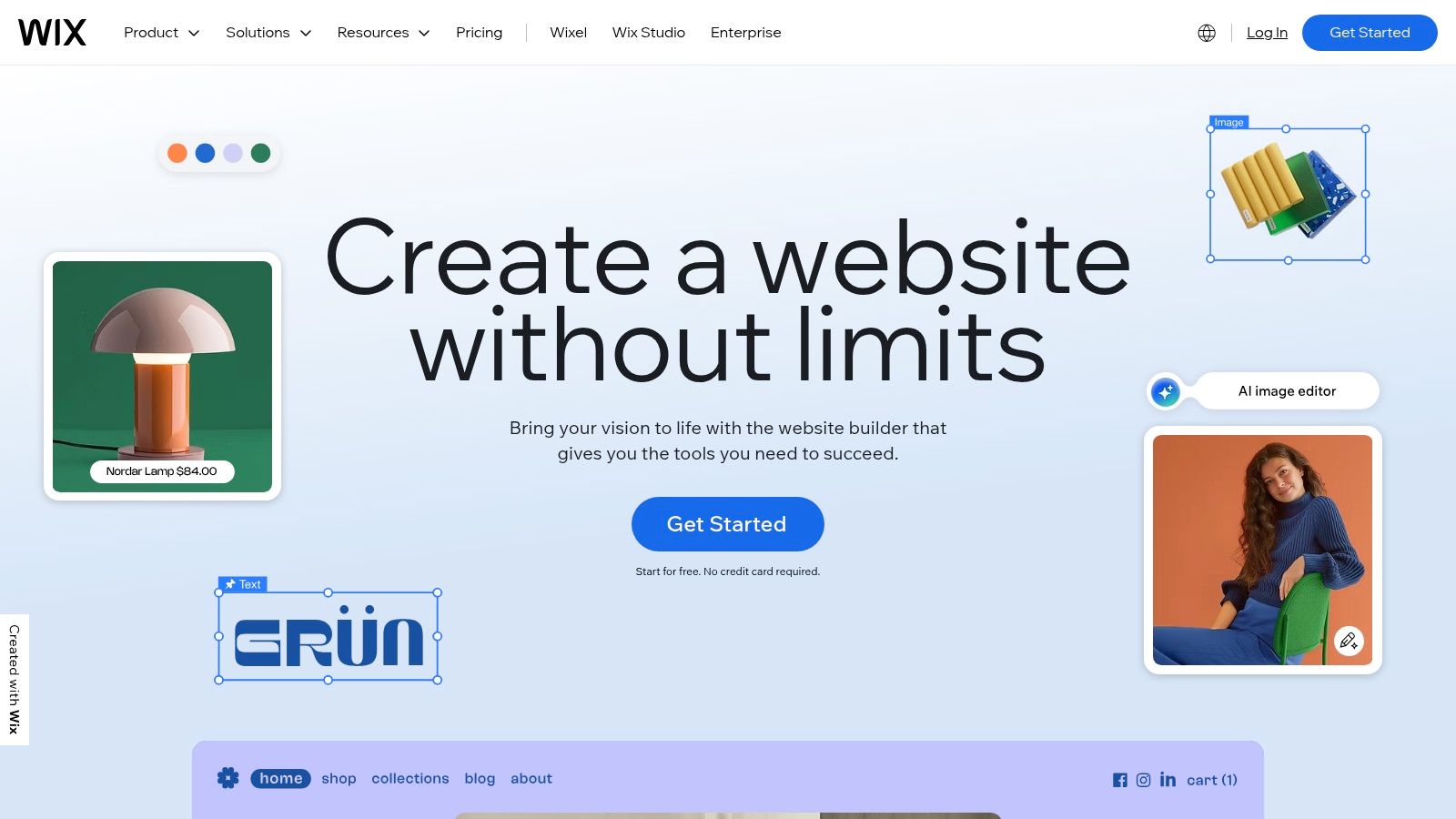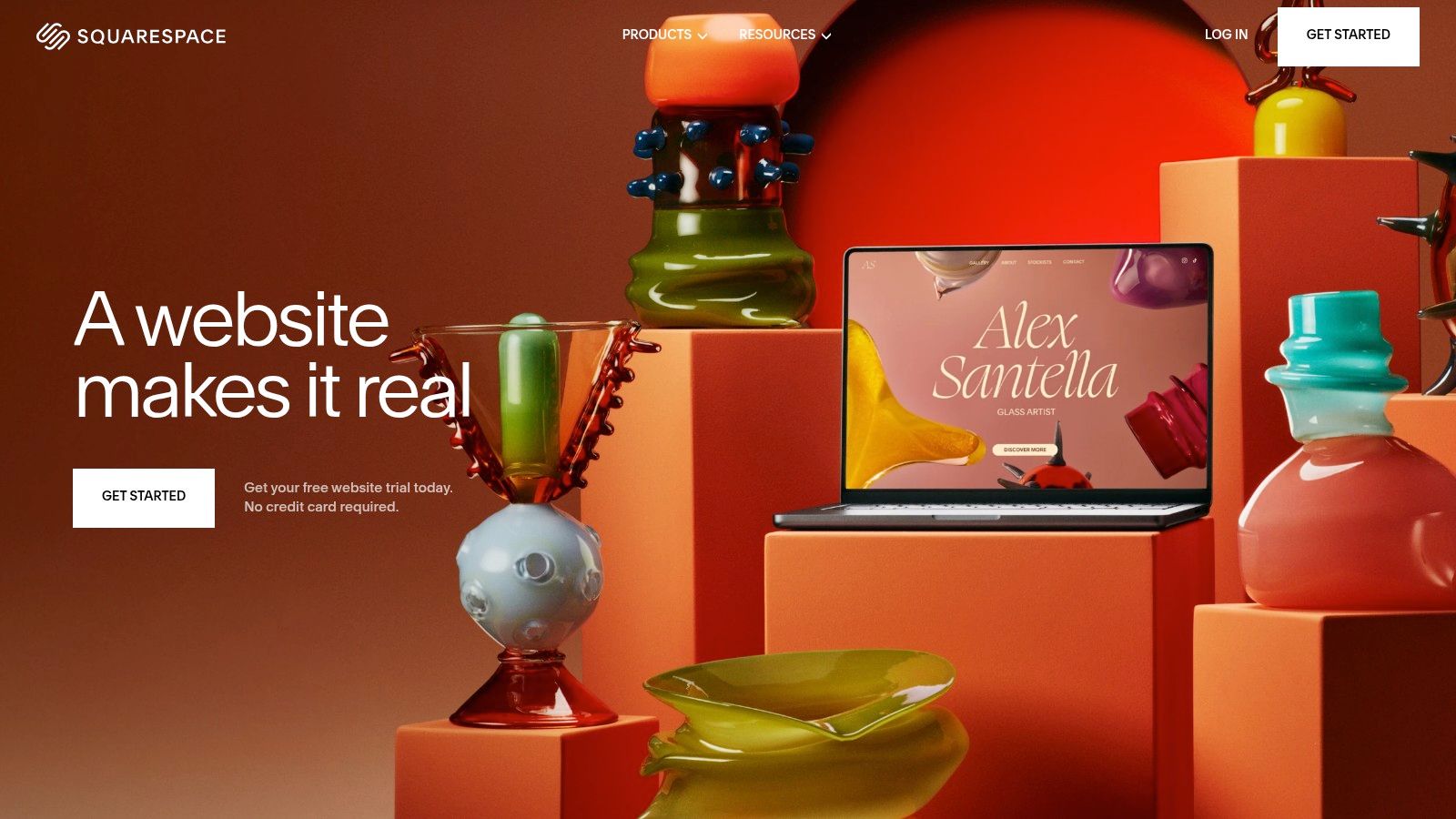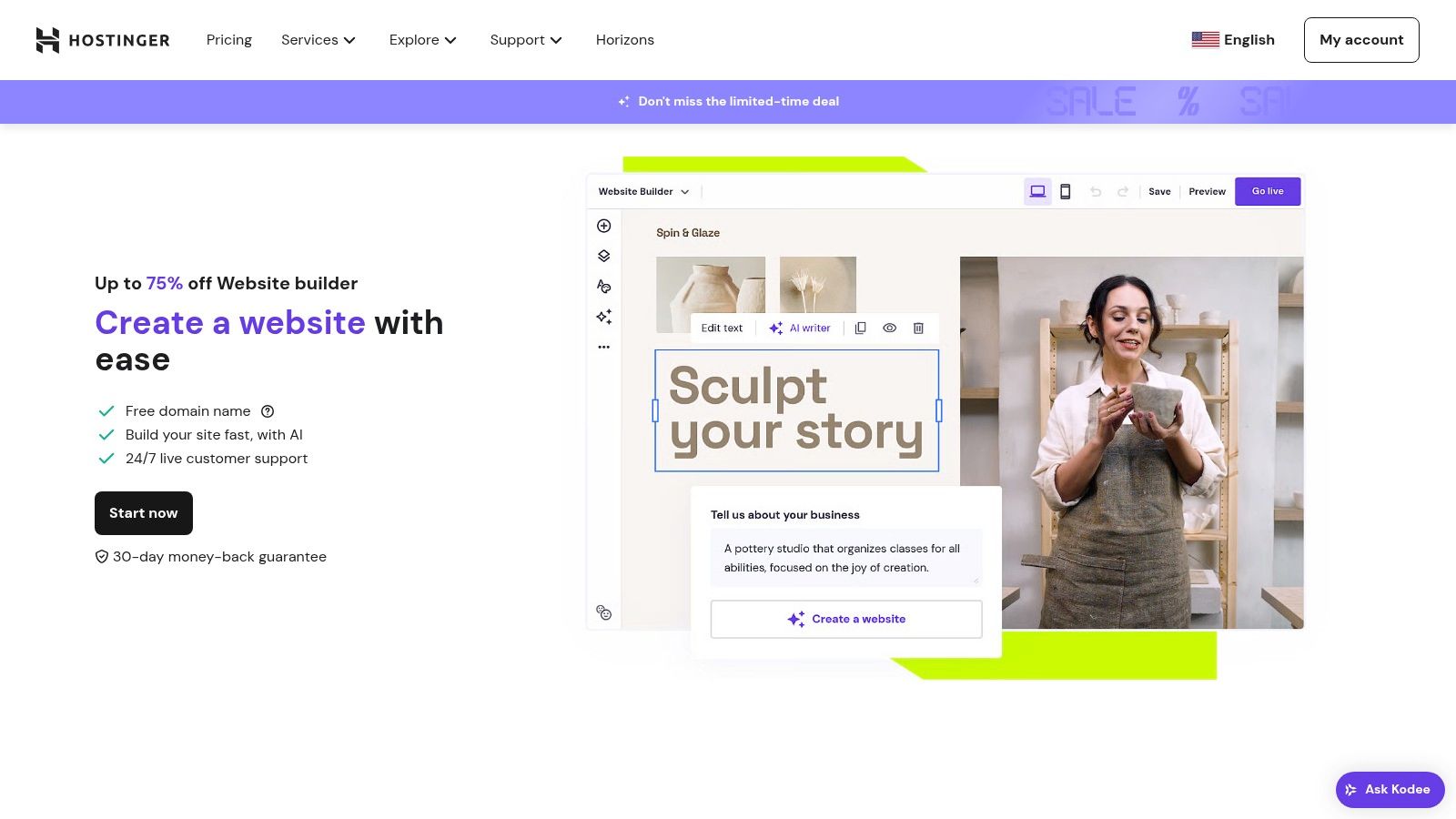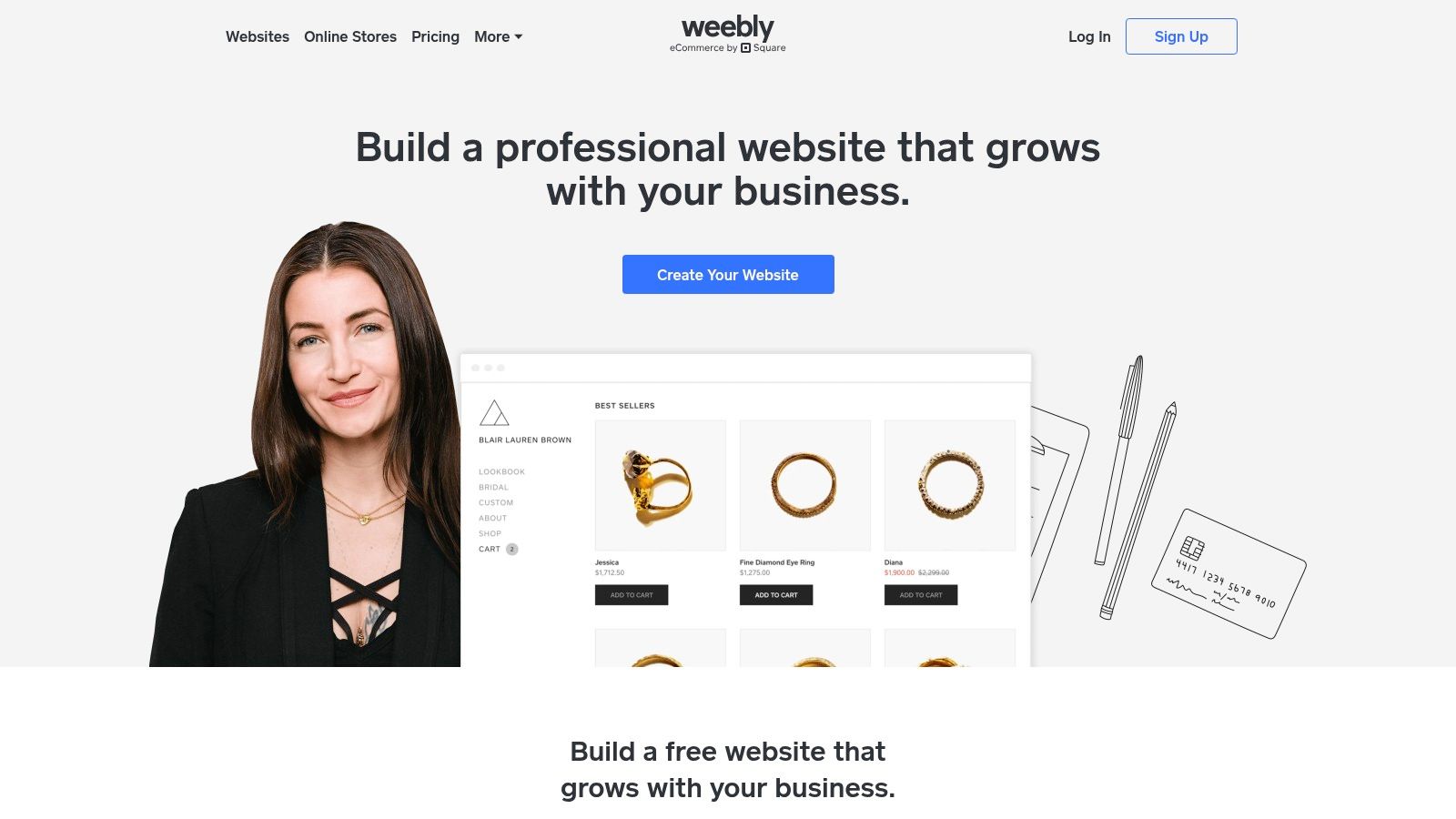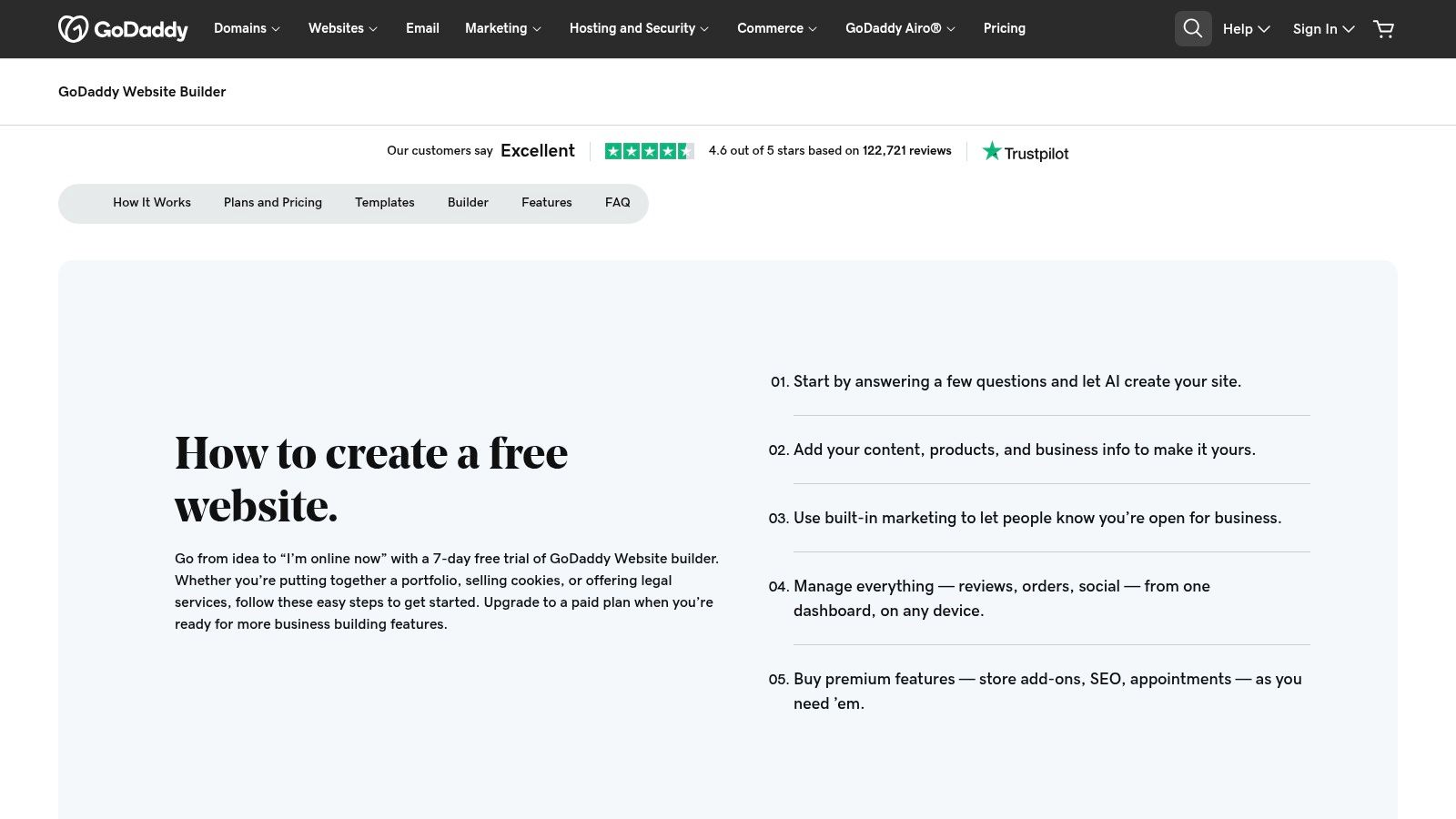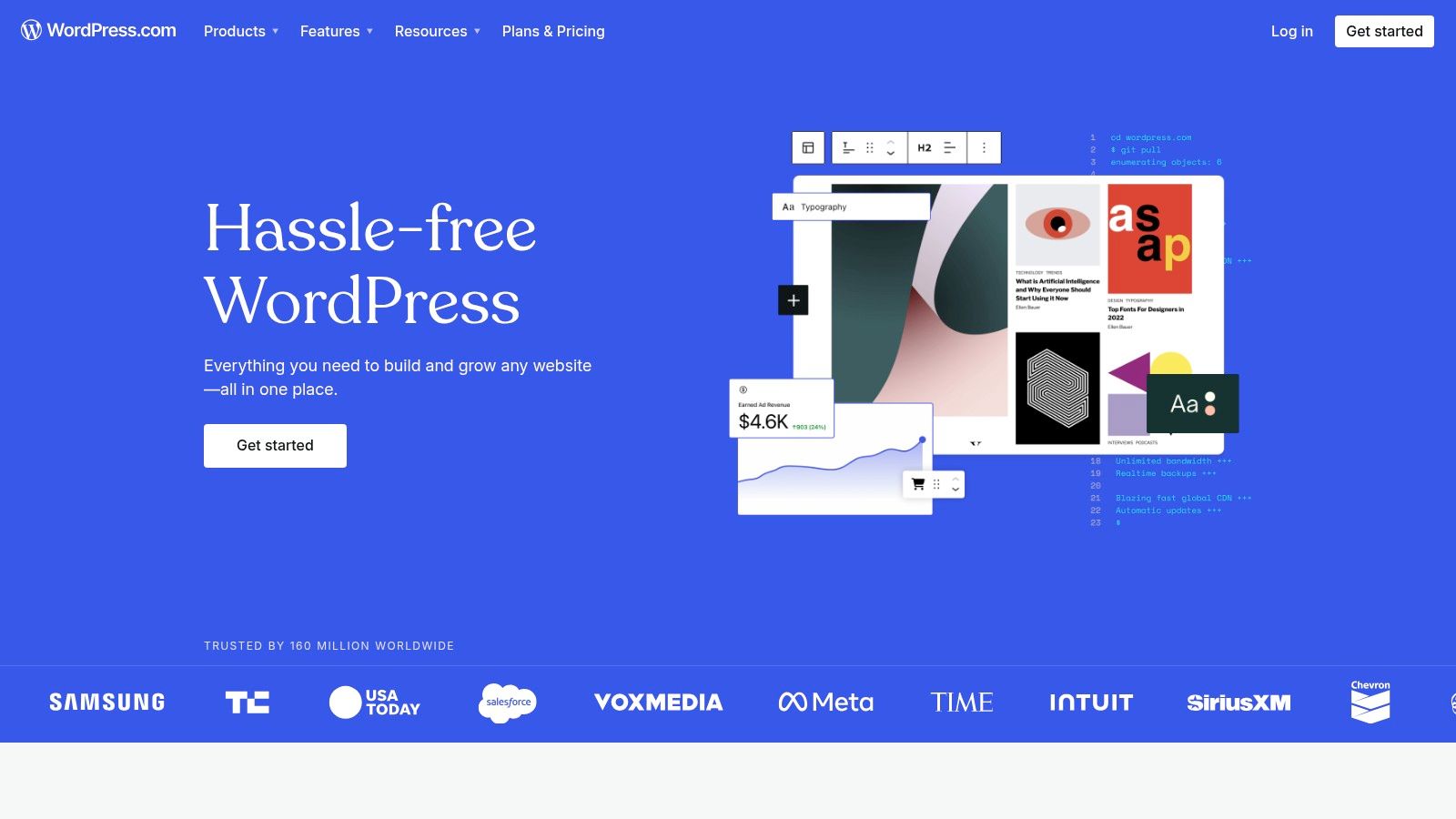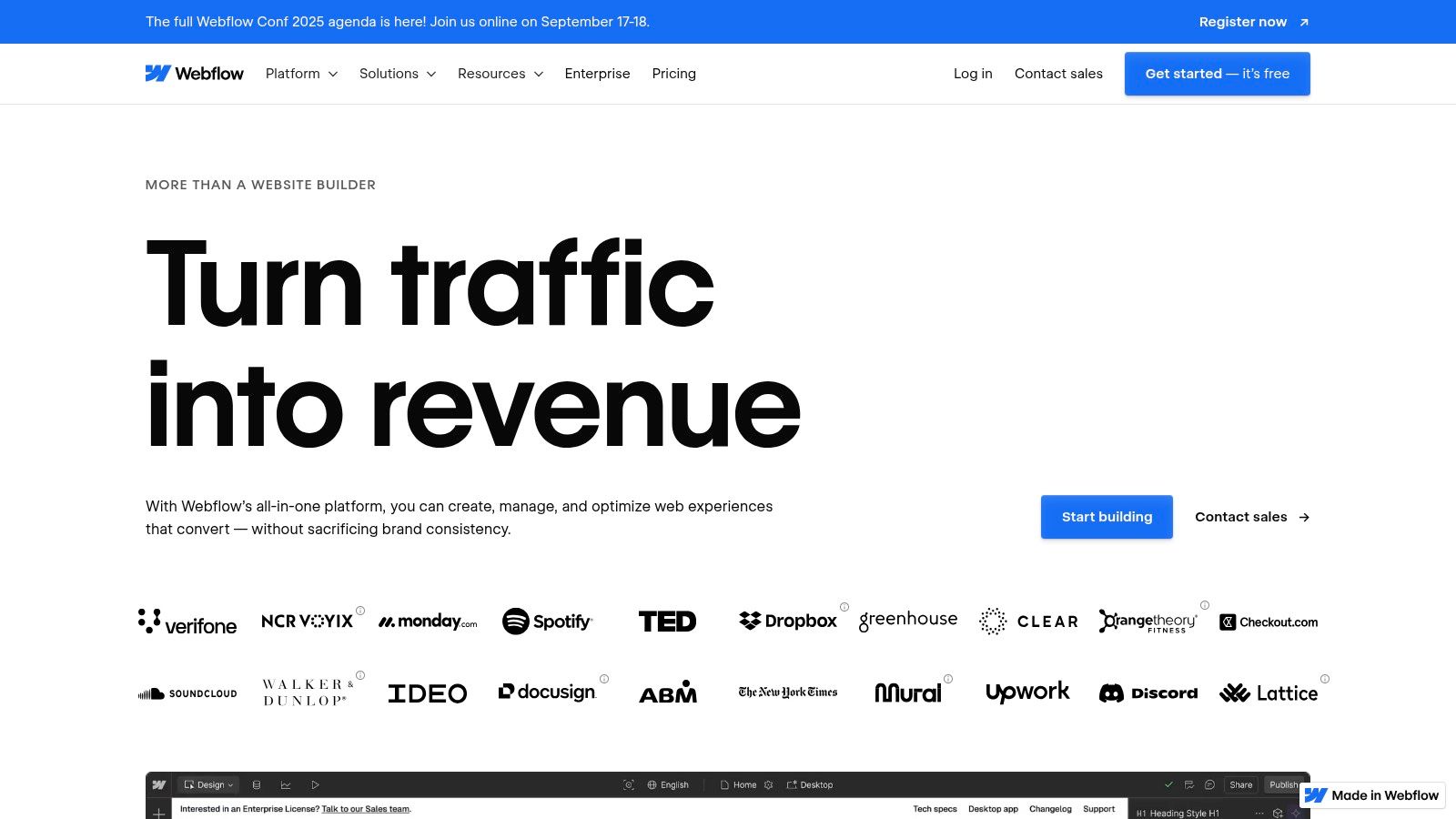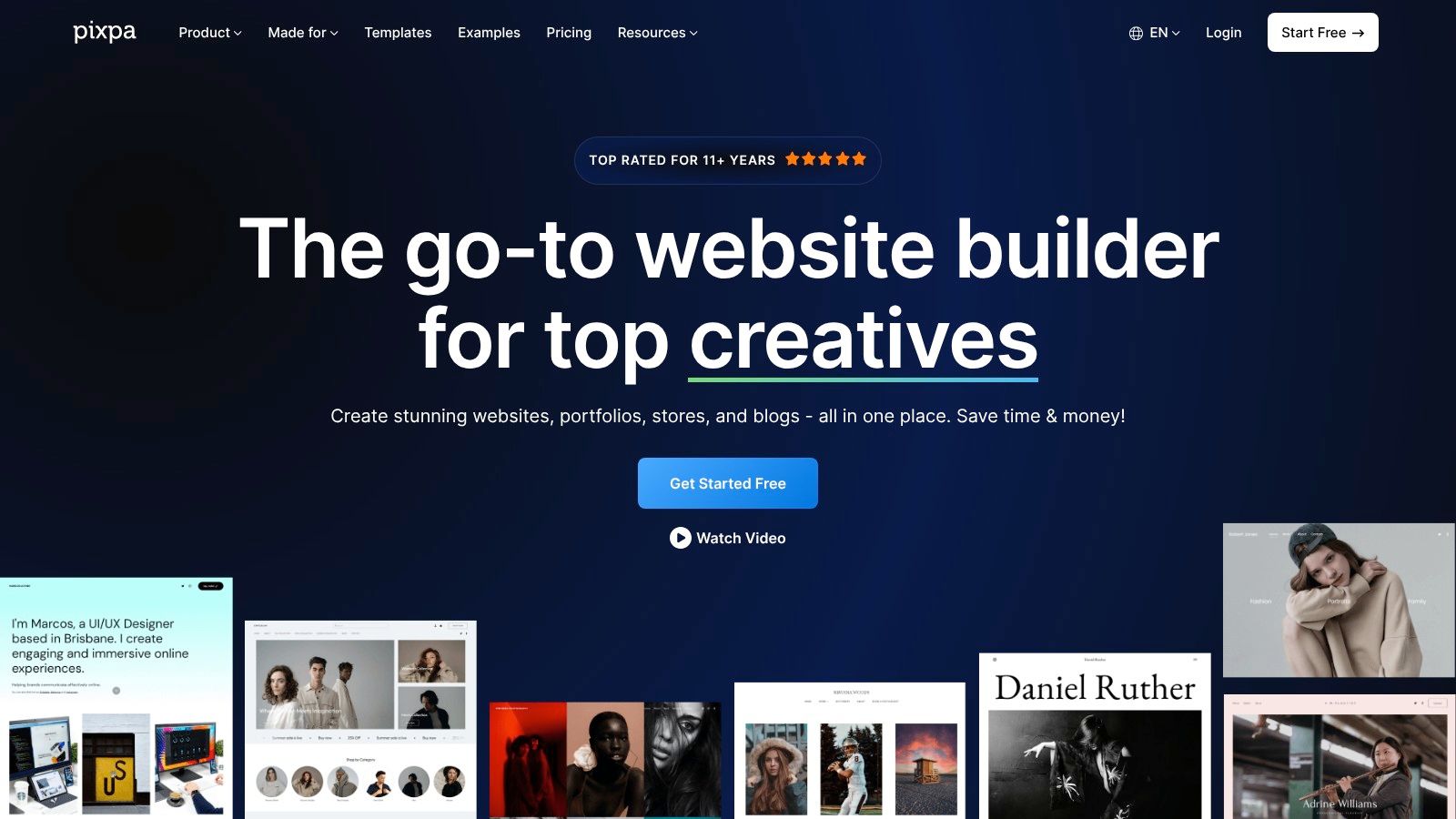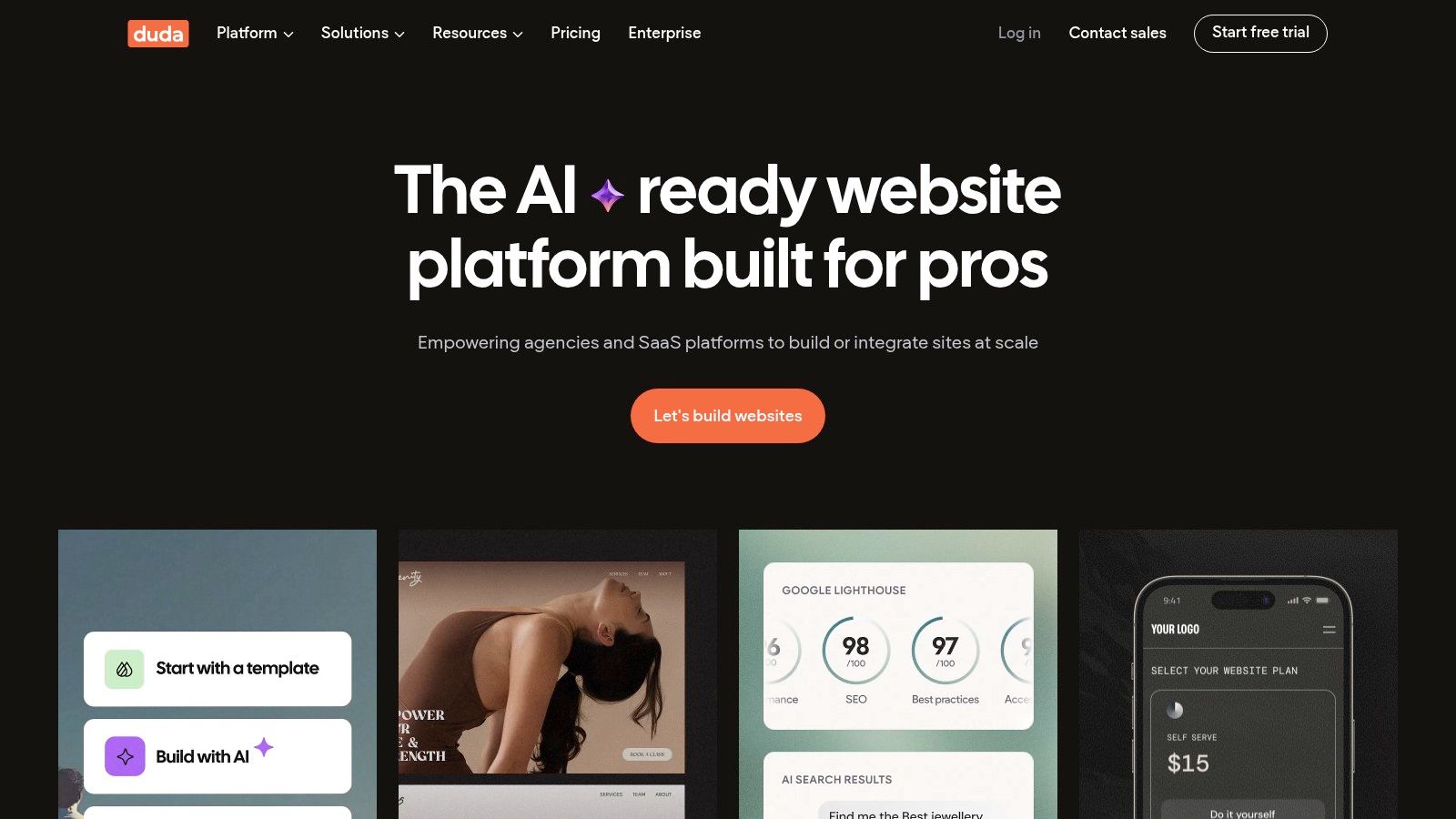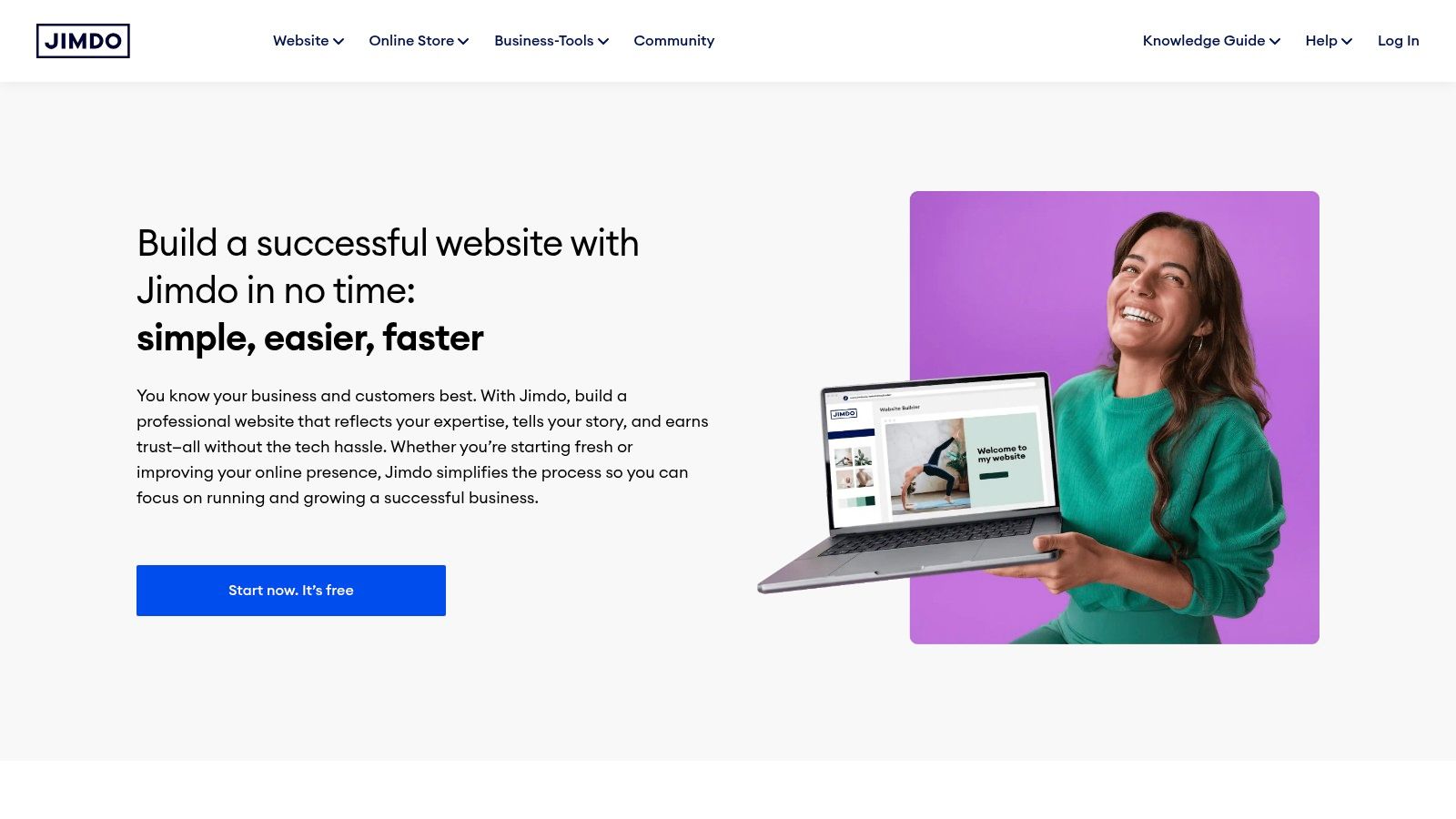Choosing the right online platform is a critical first step for any entrepreneur. A strong web presence is no longer optional; it’s the foundation for your brand, your primary sales channel, and your direct connection to customers. But with dozens of options available, finding the best website builder for small business can feel overwhelming. The wrong choice can lead to wasted time, lost revenue, and the frustrating task of migrating your site later on.
This guide cuts through the noise. We provide an in-depth, practical analysis of the top website builders on the market, moving beyond generic feature lists. We focus on real-world use cases, from service-based businesses needing simple appointment booking to e-commerce startups requiring robust inventory management. Each review breaks down not just what a platform can do, but how well it performs for specific business needs.
You'll find honest assessments of each builder's strengths and limitations, along with screenshots to see the interface for yourself. We've included direct links to get you started quickly. Our goal is to equip you with the detailed information needed to select a platform that not only meets your current requirements but can also scale with your business as it grows.
1. Wix
Wix stands out as arguably the best website builder for small business owners who prioritize creative control without needing to code. Its true drag-and-drop editor offers pixel-perfect placement, giving you complete freedom to design a site that perfectly matches your brand's vision. This level of flexibility is unmatched by many grid-based competitors, making it ideal for service-based businesses like photographers, designers, and restaurants who need a visually stunning online presence.
For those less confident in their design skills, Wix ADI (Artificial Design Intelligence) can generate a professional website in minutes based on a few simple questions. This dual-approach, catering to both beginners and seasoned designers, is a key differentiator.
Key Features & Pricing
Wix offers a comprehensive suite of tools built directly into its platform, from robust e-commerce and booking systems to a vast App Market for expanding functionality.
- Pricing: While a free plan exists (with Wix branding), paid plans are necessary for professional use. Light plans start around $17/month, with Business e-commerce plans beginning at approximately $27/month.
- Best For: Creative professionals, service-based businesses, and entrepreneurs wanting total design freedom.
- Pros: Highly intuitive drag-and-drop editor, over 900 customizable templates, and extensive integrated business tools.
- Cons: Once you choose a template, you cannot switch to another without rebuilding your site. The free plan's branding can appear unprofessional.
Website: https://www.wix.com
2. Squarespace
Squarespace is the undisputed champion for small businesses where impeccable design and branding are non-negotiable. It’s celebrated for its award-winning, mobile-responsive templates that provide a polished and professional look right out of the box. Unlike the total freedom of a drag-and-drop editor, Squarespace uses a structured, section-based system that ensures your site maintains its design integrity, making it one of the best website builder for small business owners who value aesthetics over granular control.
This all-in-one platform excels by seamlessly integrating everything you need, from powerful e-commerce and appointment scheduling to robust blogging and marketing tools. Its high-quality user experience makes it a top choice for creatives, consultants, and boutique online stores. To see what a polished final product looks like, you can find inspiration from this great business website example.
Key Features & Pricing
Squarespace bundles hosting, security, and exceptional 24/7 customer support into every plan, simplifying the technical side of running a website.
- Pricing: There is no free plan, but a 14-day free trial is available. Personal plans start around $16/month, with Business plans offering more features at about $23/month.
- Best For: Portfolios, creative professionals, bloggers, and service-based businesses that need a visually stunning website.
- Pros: Award-winning template designs, a powerful all-in-one platform, and a user-friendly editor.
- Cons: The structured editor offers less design flexibility than competitors like Wix, and it has a more limited selection of third-party integrations.
Website: https://www.squarespace.com
3. Shopify
For businesses focused primarily on selling products online, Shopify is the undisputed champion. It's less of a general website builder and more of a powerful, all-in-one commerce platform designed from the ground up to manage and grow an online store. If your main goal is e-commerce, Shopify provides a robust and scalable foundation that many competitors struggle to match, making it a top contender for the best website builder for small business owners with retail ambitions.
Its strength lies in its dedicated e-commerce infrastructure, which simplifies everything from inventory and order management to processing payments and handling shipping. The platform is built to scale, supporting businesses from their first sale to millions in revenue without needing a platform migration.
Key Features & Pricing
Shopify integrates comprehensive sales tools with an extensive app marketplace, allowing you to customize your store's functionality as your business grows.
- Pricing: Plans start with the Basic plan at around $29/month (billed annually). Shopify also charges transaction fees on sales unless you use their integrated Shopify Payments gateway.
- Best For: E-commerce businesses, retailers with physical locations (POS integration), and direct-to-consumer brands.
- Pros: Unmatched e-commerce features, highly scalable for business growth, and excellent built-in marketing and analytics tools.
- Cons: Transaction fees apply if not using Shopify Payments. The cost can increase significantly as you add paid apps from the marketplace.
Website: https://www.shopify.com
4. Hostinger Website Builder
Hostinger Website Builder emerges as a top contender for the best website builder for small business owners who need an all-in-one, budget-friendly solution. Tightly integrated with its renowned hosting services, Hostinger focuses on speed and simplicity. Its AI-powered tools can generate a complete website with text and images in under a minute, making it perfect for entrepreneurs who need to get online fast without a steep learning curve.
The platform offers a clean, grid-based editor that simplifies the design process, ensuring your site looks professional on all devices. For those interested in monetizing their site beyond direct sales, exploring options like Hostinger's affiliate program can provide an additional revenue stream.
Key Features & Pricing
Hostinger bundles everything a small business needs to launch, including hosting, a domain, and marketing tools, into one affordable package.
- Pricing: There is no free plan, but its single premium plan is very competitively priced, often starting around $2.99/month with introductory offers. This includes a free domain for the first year and e-commerce features.
- Best For: Startups, solopreneurs, and small businesses seeking an affordable, fast, and easy-to-use website builder.
- Pros: Extremely budget-friendly pricing, user-friendly AI tools for quick setup, and excellent website loading speeds.
- Cons: Limited third-party app integrations compared to larger platforms and no free-forever plan is available.
Website: https://www.hostinger.com/website-builder
5. Weebly
Weebly secures its spot as one of the best website builder for small business options by focusing on simplicity and ease of use, particularly for those new to creating a website. Its drag-and-drop editor is straightforward and intuitive, making it incredibly accessible for entrepreneurs who need to get a functional, professional-looking site online quickly without a steep learning curve. The platform is especially powerful for businesses that also have a physical presence, thanks to its deep integration with Square’s payment and point-of-sale systems.
This synergy between online and offline sales makes Weebly a unique choice for retailers, cafes, and service providers looking to unify their operations. Its mobile-responsive themes ensure a great user experience on any device, and its built-in SEO tools help new sites get found by customers. For more information on improving your site's visibility, consider reading about SEO services for local businesses.
Key Features & Pricing
Weebly bundles essential e-commerce and marketing tools directly into its plans, supported by an App Center for additional functionality.
- Pricing: A free plan is available for basic use. Professional plans with custom domains start around $13/month, while Performance plans with advanced e-commerce features are approximately $29/month.
- Best For: Beginners, small retail businesses, and anyone using the Square ecosystem.
- Pros: Very easy to learn and use, strong e-commerce features through Square, and affordable pricing.
- Cons: Design customization is more limited than competitors like Wix, and it has fewer advanced features overall.
Website: https://www.weebly.com
6. GoDaddy Website Builder
GoDaddy is renowned for its domain and hosting services, but its Website Builder is engineered for absolute speed and simplicity. It stands out as the best website builder for small business owners who need to get online as fast as possible without a steep learning curve. The platform is less about granular design control and more about efficiency, using an AI-powered setup process to generate a functional, industry-specific site in mere minutes. This makes it perfect for businesses that view their website as a necessary, straightforward tool rather than a complex creative project.
The builder is not designed to compete with the complex customization of Wix or Squarespace. Instead, its strength lies in its all-in-one approach, integrating marketing, appointments, and basic e-commerce directly into a single, user-friendly dashboard.
Key Features & Pricing
GoDaddy bundles everything a small business needs to launch and market itself online, backed by its well-known 24/7 support.
- Pricing: A free plan is available. Paid plans are very affordable, often starting around $10/month, with e-commerce plans beginning at approximately $17/month.
- Best For: Solo entrepreneurs and small businesses needing a simple, professional web presence quickly and affordably.
- Pros: Extremely fast setup process, very user-friendly interface, and affordable all-in-one plans with integrated marketing tools.
- Cons: Customization options are limited compared to competitors, and the templates can feel basic.
Website: https://www.godaddy.com/websites/website-builder
7. WordPress.com
WordPress.com offers a powerful, hosted version of the world's most popular content management system, making it a top contender for content-driven businesses. While it has a steeper learning curve than drag-and-drop builders, its flexibility is immense. This platform is the best website builder for small business owners who plan to scale and require a robust blogging foundation combined with extensive customization options through themes and plugins.
Unlike its self-hosted counterpart (WordPress.org), WordPress.com handles the hosting and technical maintenance for you, providing a more streamlined entry point into the ecosystem. Small business owners who prefer a hands-on approach can also benefit, as learning how to keep your WordPress site secure without a developer offers valuable insights into managing site security independently. Learn more about its role in website development for startups.
Key Features & Pricing
The platform's strength lies in its scalability, allowing you to start simple and add complex functionality like e-commerce or membership areas as your business grows.
- Pricing: A free plan with ads and limited features is available. Paid plans start around $4/month (billed annually) for personal use, with Business plans required for plugins at about $25/month.
- Best For: Bloggers, content-heavy websites, and businesses planning for long-term growth and scalability.
- Pros: Highly customizable with access to thousands of themes and plugins (on higher-tier plans), strong SEO capabilities, and a scalable framework.
- Cons: Steeper learning curve compared to other builders, and key features like plugin installation are locked behind more expensive plans.
Website: https://wordpress.com
8. Webflow
Webflow is the powerhouse platform for designers, agencies, and businesses that need granular control over design without writing code. It bridges the gap between traditional website builders and full-stack development, offering a visual canvas that directly translates to clean, semantic HTML and CSS. This makes it an exceptional choice for businesses that refuse to be constrained by templates and require a truly custom, high-performance website.
While its interface is more complex than simpler builders, the payoff is unparalleled design flexibility, advanced animations, and a powerful integrated CMS for managing dynamic content like blogs or portfolios.
Key Features & Pricing
Webflow’s ecosystem is built for professional-grade projects, from its robust design tools to its managed, high-performance hosting.
- Pricing: A free "starter" plan lets you build and learn. Paid site plans start at $14/month (billed annually) for basic sites, with CMS plans beginning at $23/month. E-commerce plans start at approximately $29/month.
- Best For: Design-focused businesses, agencies, and startups that want a custom site without hiring a developer.
- Pros: Ultimate design control and customization, creates clean and exportable code, and features a powerful CMS for dynamic content.
- Cons: Has a significant learning curve compared to competitors. Pricing can be higher, especially for multiple sites or e-commerce.
Website: https://www.webflow.com
9. Pixpa
Pixpa carves out a specific niche, positioning itself as the best website builder for small business owners in creative fields like photography, art, and design. Its all-in-one platform is built to showcase visual work through professional portfolios, while seamlessly integrating client galleries for proofing and e-commerce for selling prints or digital products. This integrated approach removes the need for multiple, disconnected subscriptions, making it a streamlined and cost-effective solution for creative entrepreneurs.
The platform focuses on providing creators with the tools they need to run their entire online business from one place. This includes blogging tools to share stories behind their work and built-in SEO features to help them get discovered by potential clients.
Key Features & Pricing
Pixpa’s strength lies in its specialized, comprehensive feature set tailored for visual artists and its highly competitive pricing structure.
- Pricing: There is no free plan, but pricing is very affordable. The Basic plan starts at just $6/month (billed annually), with the Creator plan, including e-commerce and client galleries, at around $12/month.
- Best For: Photographers, artists, designers, and any creative professional needing a portfolio-centric website.
- Pros: Very affordable plans, tailored features for creatives (especially client galleries), and a clean, user-friendly interface.
- Cons: The template library is smaller compared to giants like Wix, and it has fewer third-party app integrations.
Website: https://www.pixpa.com
10. Duda
Duda excels as a professional website builder tailored for digital agencies, freelancers, and businesses that manage multiple client sites. Its platform is engineered for efficiency, allowing users to build high-performing, responsive websites at scale. The structured, section-based editor offers a great balance between creative freedom and template-driven consistency, making it a powerful tool for delivering professional results quickly. This focus on agency-level workflow and client management makes it a unique contender.
A key advantage is its robust set of built-in tools, including dynamic content personalization, powerful SEO features, and white-label capabilities. This allows agencies to brand the platform as their own when providing access to clients, creating a seamless and professional experience.
Key Features & Pricing
Duda's feature set is geared towards creating and managing websites efficiently, with strong collaboration and client-facing tools.
- Pricing: Duda's plans are agency-focused and start higher than many consumer-grade builders. The Basic plan begins around $25/month for one site, with team and agency plans offering more sites and features at higher price points.
- Best For: Web design agencies, SaaS platforms, and freelancers who build and manage websites for clients.
- Pros: Excellent for managing multiple sites from one dashboard, strong white-label options, and all templates are fully responsive.
- Cons: Pricing can be high for a single small business, and it has a more limited third-party app market compared to competitors.
Website: https://www.duda.co
11. Jimdo
Jimdo is a strong contender for the best website builder for small business owners who need to get online as quickly and simply as possible. It champions an AI-assisted approach, where its "Dolphin" editor asks you a few questions about your business and goals, then automatically generates a professional, fully-equipped website in about three minutes. This removes nearly all the guesswork and design paralysis, making it perfect for solopreneurs or those with no technical background.
While the AI-driven Dolphin editor is streamlined, Jimdo also offers a "Creator" editor for those who want a bit more traditional control over their site's layout. This dual-editor system provides a clear path for users, whether they prioritize speed or a touch more customization, all within a very user-friendly environment.
Key Features & Pricing
Jimdo's all-in-one packages include a free domain and hosting, simplifying the entire setup process. The platform integrates essential SEO tools and mobile-responsive designs from the start.
- Pricing: A very limited free plan is available. Paid "Start" plans begin around $9/month, with "Business" plans offering more features at approximately $15/month and e-commerce plans starting near $19/month.
- Best For: Solopreneurs, freelancers, and small local businesses needing a fast, professional, and low-maintenance web presence.
- Pros: Extremely quick setup process with AI, affordable pricing tiers, and a very clean, easy-to-navigate interface.
- Cons: Customization options are significantly more limited than competitors, and it lacks the advanced features or app markets of larger platforms.
Website: https://www.jimdo.com
12. Webnode
Webnode carves out a unique space as a strong contender for the best website builder for small business owners with global ambitions. Its standout feature is the built-in, easy-to-use multilingual functionality, allowing you to create and manage versions of your site in different languages from a single dashboard. This makes it an exceptionally practical choice for businesses looking to expand into international markets without the complexity of third-party plugins or separate websites.
The platform combines this global-first approach with a straightforward, user-friendly editor and a collection of modern, mobile-responsive templates. While it may not offer the deep customization of more advanced builders, its focus on simplicity and efficiency is perfect for entrepreneurs who need to get a professional, multilingual site online quickly and affordably.
Key Features & Pricing
Webnode prioritizes core features that enable international reach and basic e-commerce without overwhelming users with too many options.
- Pricing: Webnode offers a limited free plan. Paid plans are very competitive, with the Limited plan starting around $4.90/month and the Standard plan, which includes more features and e-commerce, at approximately $12.90/month.
- Best For: Businesses targeting international audiences, consultants, and small companies needing a simple, professional web presence.
- Pros: Excellent native support for creating multilingual websites, highly affordable pricing, and a very easy-to-use editor.
- Cons: Design flexibility is more limited than competitors, and it lacks some of the advanced e-commerce and marketing features found elsewhere.
Website: https://www.webnode.com
Top 12 Small Business Website Builders Comparison
| Platform | Core Features/Functionality | User Experience & Quality ★★★★☆ | Value & Pricing 💰 | Target Audience 👥 | Unique Selling Points ✨ |
|---|---|---|---|---|---|
| Wix | Drag-and-drop editor, AI design, e-commerce, app market | User-friendly, flexible, broad template selection | Moderate; free plan with branding | Beginners to advanced designers | 900+ templates, Wix ADI, extensive apps |
| Squarespace | Sleek templates, integrated e-commerce & blogging | High-quality design, intuitive interface | Mid-range, hosting included | Design-focused businesses | All-in-one platform, 24/7 support |
| Shopify | E-commerce tools, multiple payments, inventory management | Scalable, strong support, marketing tools | Higher; monthly + app fees | E-commerce businesses | Leading e-commerce platform, POS integrations |
| Hostinger Website Builder | AI-driven creation, e-commerce, free domain & SSL | Beginner-friendly, fast loading | Budget-friendly | Small businesses | Affordable, hosting included, AI-driven |
| Weebly | Drag-and-drop, e-commerce, SEO, mobile-responsive themes | Easy for beginners, affordable | Low to moderate | Small businesses, startups | Simple UI, integrated with Square POS |
| GoDaddy Website Builder | AI design, marketing tools, e-commerce, 24/7 support | Fast setup, user-friendly | Affordable | Users needing quick setup | AI-assisted, 24/7 support |
| WordPress.com | Blogging, SEO, plugins, WooCommerce e-commerce | Highly customizable, steep learning curve | Variable; free and premium plans | Content creators, scalable sites | Vast plugin ecosystem, flexible and scalable |
| Webflow | Visual drag-drop, CMS, e-commerce, hosting | Professional-grade design control, steeper learning curve | Higher pricing | Designers, agencies | No-code advanced design, CMS for dynamic content |
| Pixpa | Portfolio focus, e-commerce, client galleries, blogging | Tailored for creatives, affordable | Budget-friendly | Creatives, small businesses | Client galleries, comprehensive creative tools |
| Duda | Multi-site management, client tools, e-commerce, SEO | Efficient for agencies, responsive templates | Higher pricing | Agencies, freelancers | White-label, team collaboration |
| Jimdo | AI website creation, e-commerce, free domain & hosting | Quick, user-friendly, limited customization | Affordable | Small businesses, personals | AI-assisted setup, free domain & hosting |
| Webnode | Multilingual support, e-commerce, SEO, drag-and-drop | Easy to use, affordable, limited design flexibility | Budget-friendly | International businesses | Multilingual websites support |
Final Thoughts
Choosing the best website builder for your small business is a foundational decision that will shape your online presence for years to come. As we've explored, the "best" choice isn't a one-size-fits-all solution; it’s the platform that most closely aligns with your specific business model, technical comfort level, and future growth ambitions. This decision marks the first step in building your digital headquarters.
Our deep dive into platforms like Wix, Squarespace, and Shopify has shown that there's a powerful tool available for every type of entrepreneur. From the aspiring e-commerce mogul to the local service provider, the right builder is waiting to bring your vision to life.
Key Takeaways and Making Your Decision
To simplify your choice, let's distill the key decision points. Your selection process should revolve around three core pillars: your primary business goal, your budget, and your required level of control.
-
For E-commerce Entrepreneurs: If selling products online is your main objective, Shopify is the undisputed leader. Its powerful inventory management, integrated payment gateways, and scalable infrastructure are built specifically for commerce. While Wix and Squarespace offer strong e-commerce features, Shopify's dedicated focus provides a more robust and future-proof solution for serious sellers.
-
For Creatives and Service-Based Businesses: If your priority is showcasing a stunning portfolio or creating a visually rich brand experience, Squarespace excels. Its award-winning templates and design-centric approach make it ideal for photographers, designers, consultants, and artists. For those needing even more creative freedom, Webflow offers unparalleled design control, though it comes with a steeper learning curve.
-
For Beginners and All-in-One Simplicity: If you need to get online quickly with minimal fuss, Wix and the Hostinger Website Builder are fantastic starting points. Wix offers immense flexibility with its drag-and-drop editor, while Hostinger provides an incredibly user-friendly, AI-driven experience at an affordable price point. GoDaddy also fits this category, offering a simple builder combined with its domain and marketing tools.
Your Next Steps: From Building to Growing
Once you've selected your platform, the journey is just beginning. Building your site is the first major milestone, but attracting visitors and converting them into customers is the next critical phase. A beautifully designed website is ineffective if no one can find it. This is where a solid digital marketing strategy becomes essential.
To ensure your new website thrives, it's crucial to understand how to drive targeted traffic. Mastering the fundamentals of search visibility will give you a significant competitive advantage. For a comprehensive guide on this topic, exploring effective search engine marketing best practices is an excellent next step to ensure your small business gets the attention it deserves.
Ultimately, the best website builder for your small business empowers you to achieve your goals without becoming a technical burden. Don't be afraid to utilize the free trials offered by nearly every platform on this list. Test the dashboards, experiment with the editors, and see which one feels most intuitive for you. Your perfect digital partner is out there.
Feeling overwhelmed by design choices and want to launch with a professional, custom-built website without the high agency fees? Sugar Pixels offers stunning, conversion-focused website design services built on the industry's leading platforms. We help you choose the right builder and then create a beautiful, effective site so you can focus on what you do best: running your business. Visit us at Sugar Pixels to see how we can bring your brand to life online.
